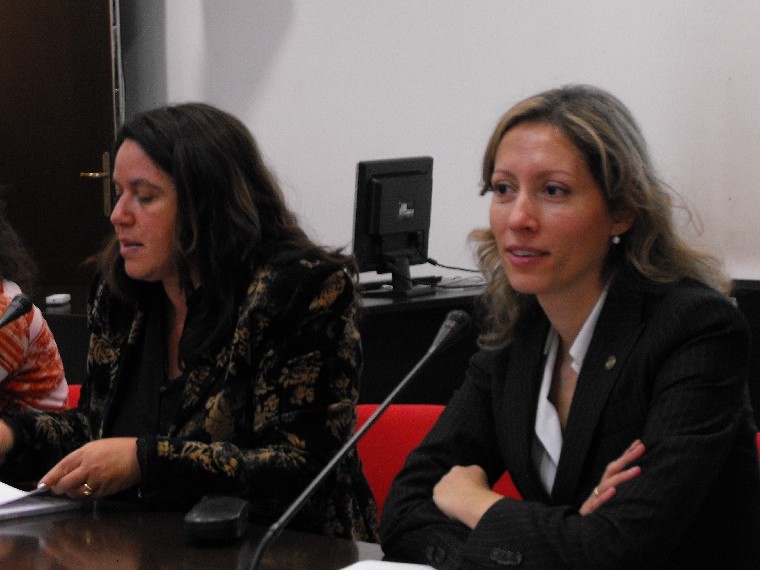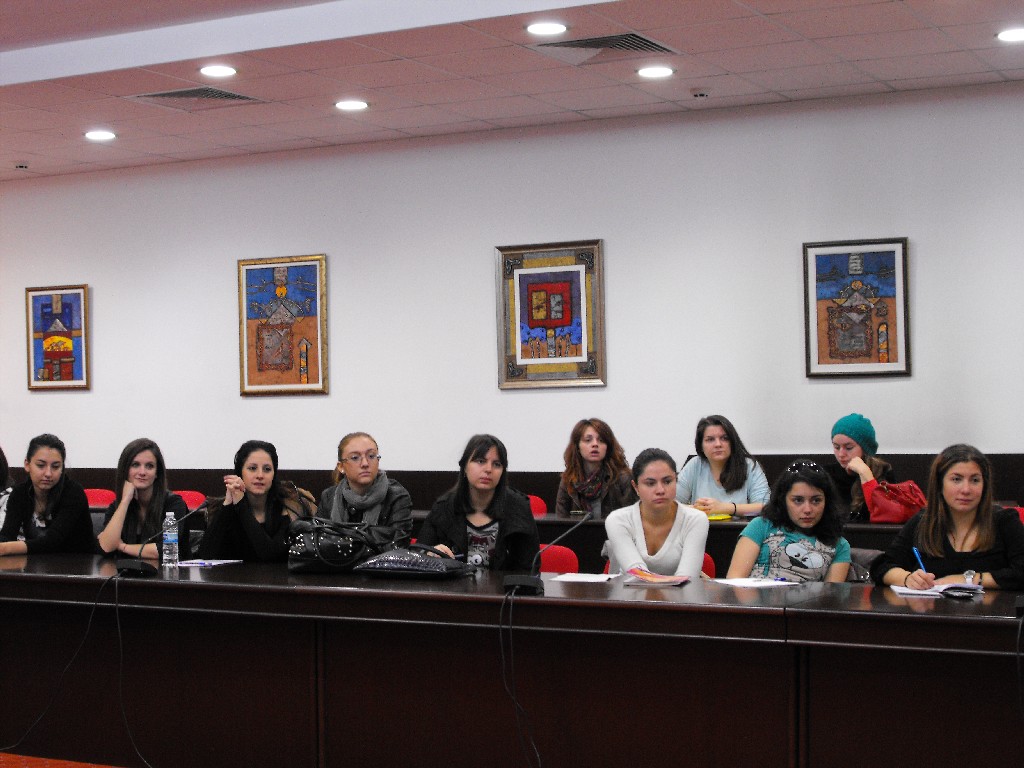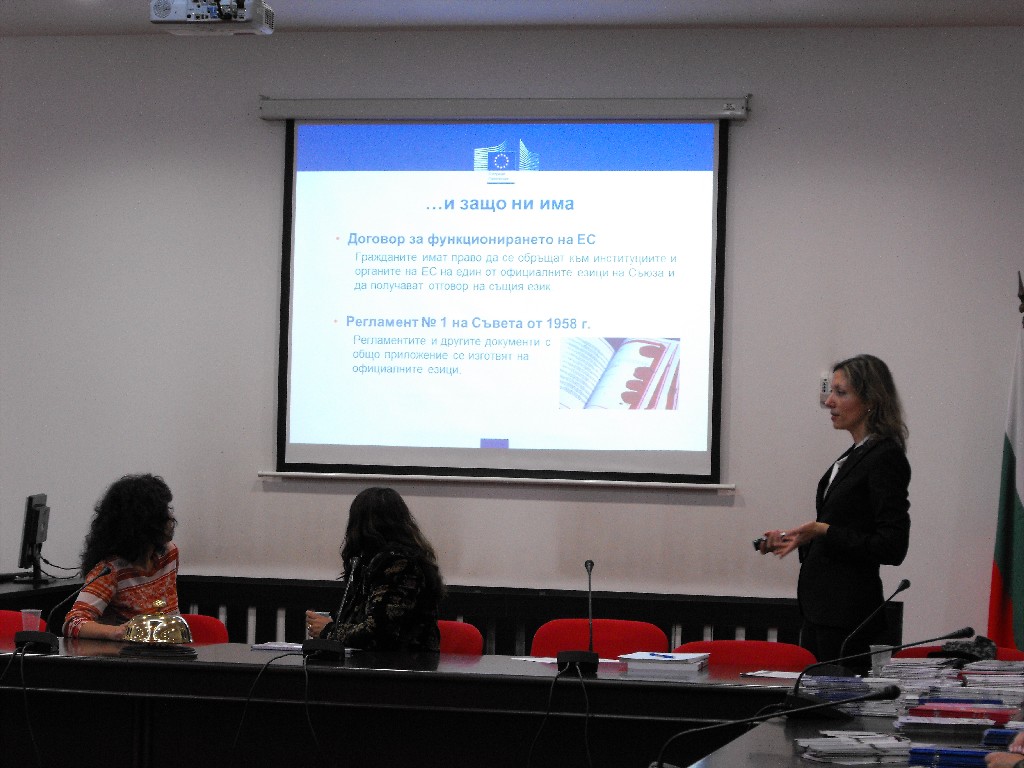What Does It Mean Being A Translator in The European Commission
A presentation on Found in Translation or What Does It Mean Working as a Translator in the European Commission was made to students by Desislava Petrova, translator at the Directorate General for Translations of the European Commission and Master of Science on Economics and Tourism graduated from the UNWE. The event was organized by the Foreign Languages and Applied Linguistics Department.
24 have already become the official European Union languages among which is also the Bulgarian language. The multilingual system needs professional linguists and the work of translators allows the EU to implement its legal obligations in respect of communication with the citizens, pointed out Assoc. Prof. Dr. Daniela Koh-Kozhuharova.
 |
|
Assoc. Prof. Dr. Daniela Koh-Kozhuharova (on the left) is introducing Desislava Petrova (on the right). |
What kind of translations are done for the European Commission, how many are the translators, where are they, what kind of languages ??and what information applications do they work with, what databases are used and how to apply for an internship or work as a translator to the European Commission, specified in her presentation Desislava Petrova. She outlined that one of the major democratic principles in the work of the European Parliament was the opportunity of each translator to use his/her own language in his/her work. It is important also for the citizens who have the right to monitor the activities of their representatives and have an access to the legislative base which should be applied in all member-states.
The translation is part of the legislative process of the European Union, pointed out Desislava Petrova. Translations are done by one of the largest translation services in the world – Directorate General for Translations. 1650 translators work for it in Brussels and Luxembourg. Over 1 760 000 pages have been translated in 2012 as the translations and interpretations cost 2 EUR per year for every citizen of the EU.
 |
|
Students at the Large Conference Hall |
Petrova explained also how to become a translator in the European Commission. You should provide evidence of linguistic proficiency at university level and then you need to go through a competition. The internship at the Directorate General for Translations is a good way for preparation but after an approval among thousands of candidates.
 |
|
During the presentation |
But yet when the translators are lost in their work they may help themselves by using the inter-institutional databases such as IATE which contains all the terminology associated with the EU and includes 9 000 000 records of the 24 official languages in the European Union.